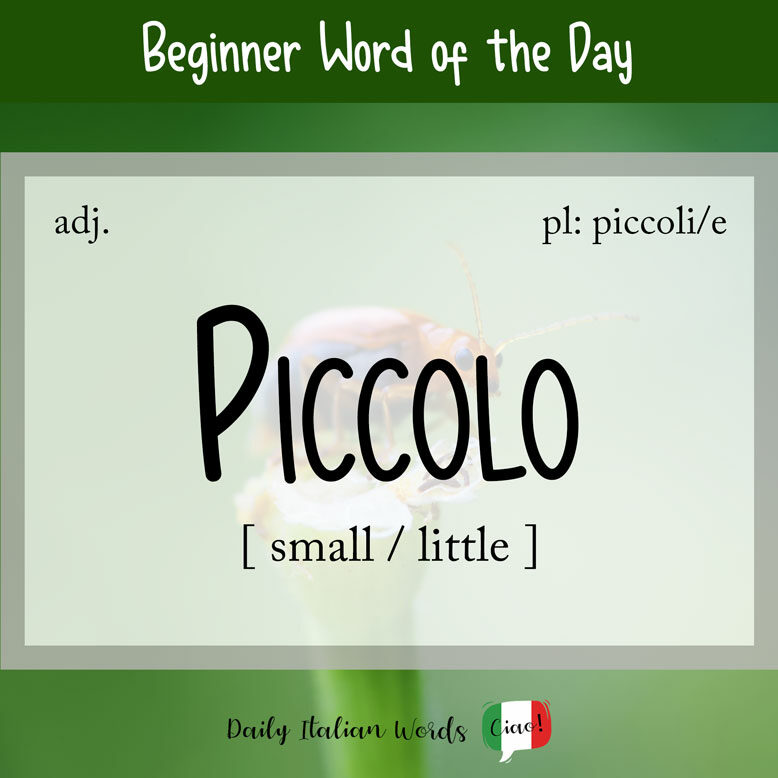The word for small or little in Italian is piccolo (masculine). The feminine form is piccola and the plural forms are piccoli (masculine) and piccole (feminine).

As in English, you can use the adjective to describe something that is small in size.
Ho comprato questa piccola caffettiera oggi. Era in offerta.
I bought this small coffee maker today. It was on offer.
Piccolo can signify more than just small however. It can also mean mediocre or of little importance when talking about a person. The key is to place the adjective and noun in the right order. Let’s see a few examples:
- un uomo piccolo = a short man
- un piccolo uomo = a man of little importance
- un impiegato piccolo = a short employee
- un piccolo impiegato = an employee of little importance
- una squadra piccola = a small team
- una piccola squadra = a mediocre team
The location in which you place the adjective won’t always change its significance. If I take the example of the caffettiera (coffee maker) in the sentence above, saying piccola caffettiera or caffettiera piccola means more or less the same thing. Placing the adjective in front of the noun in this case can emphasise the fact that you find the object small and cute.

And as always, there are some interesting exceptions. For example, the expression pesce piccolo (small fish) means a criminal who is unsuccessful or works for more powerful criminals.
You can use piccolo to talk about yourself or your abilities in a modest manner…
Nel mio piccolo sono riuscito a mettere da parte abbastanza.
In my own small way I managed to save up enough.
…or when asking someone a favour.
Avrei un piccolo favore da chiederti. – Certo, dimmi pure.
I have a small favour to ask. – Of course, go ahead.
Piccolo is used to refer to children or cubs, either to describe them (adjective), or as a term of endearment (noun). An alternative word is piccino (adjective) or cucciolo (cub, but it can also be used with children).
È ancora troppo piccola per andare in giro da sola.
She is still too young to go out by herself.
E il piccolo, come sta? – Bene grazie, ha cominciato a gattonare proprio ieri!
And the little one, how is he? = Fine, thank you, he started to crawl yesterday!
Piccolo can also change the meaning of certain words:
- piccolo schermo = TV (lit. small screen)
- piccolo commercio = retail store (lit. small commerce)
- lettera piccola = lower case letter (small letter)
You can add piccolo before the name of a famous person or town to describe a person or location that reminds you of the famous name:
- un piccolo Mozart = a musically talented person
- una piccola Venezia = a town that resembles Venice for its beauty or canals
Finally, if you want to emphasise the fact that an object or person is small (in a friendly way), you can use the diminutives piccolino or piccoletto.
Mathieu Gasquet was born and raised in Turin in the north of Italy to an Italian mother and a French father. He provides the audio pronunciation for Daily Italian Words.


